Spanish Civil War Quotes
Quotes tagged as "spanish-civil-war"
Showing 1-30 of 41
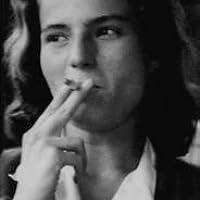
“Me parece que de nada vale correr si siempre ha de irse por el mismo camino, cerrado, de nuestra personalidad. Unos seres nacen para vivir, otros para trabajar, y otros para mirar la vida. Yo tenia un pequeño y ruin papel de espectadora. Imposible salirme de él. Imposible libertarme. Una tremenda congoja fue para mí lo único real en aquellos momentos.”
― Nada
― Nada
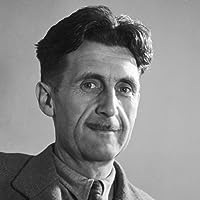
“In trench warfare five things are important: firewood, food, tobacco, candles, and the enemy. In winter on the Zaragoza front they were important in that order, with the enemy a bad last”
― Homage to Catalonia
― Homage to Catalonia

“You only heard the statement of the loss. You did not see the father fall as Pilar made him see the fascists die in that story she had told by the stream. You knew the father died in some courtyard, or against some wall, or in some field or orchard, or at night, in the lights of a truck, beside some road. You had seen the lights of the car from down the hills and heard the shooting and afterwards you had come down to the road and found the bodies. You did not see the mother shot, nor the sister, nor the brother. You heard about it; you heard the shots; and you saw the bodies.”
― For Whom the Bell Tolls
― For Whom the Bell Tolls
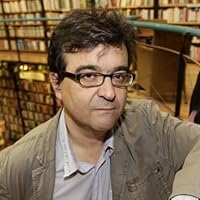
“I think it was probably both the coincidence and the beer that made Miralles say at some point that we were going to end up the same, defeated and alone and
punch-drunk in a dead-end city, pissing blood before going into the ring to fight to the death against our own shadows in an empty stadium.”
― Soldados de Salamina
punch-drunk in a dead-end city, pissing blood before going into the ring to fight to the death against our own shadows in an empty stadium.”
― Soldados de Salamina

“That was my story. Or at least the way I remember it. What happened to those characters and the places that had to do with those turbulent times, can be researched in libraries or the memories of the elderly. People like Beigbeder, Rosalinda, or Hillgarth went on to the history books.
People like Marcus and me didn't.
But that doesn't mean our lives were less important. Because, in the end, we all play a part in the world's fate. And Marcus and I always stood on the other side of the story.
Actively invisible during that time we lived in between the seams.”
― The Time in Between
People like Marcus and me didn't.
But that doesn't mean our lives were less important. Because, in the end, we all play a part in the world's fate. And Marcus and I always stood on the other side of the story.
Actively invisible during that time we lived in between the seams.”
― The Time in Between

“Together with all this there was something of the evil atmosphere of war. The town had a gaunt untidy look, roads and buildings were in poor repair, the streets at night were dimly lit for fear of air — raids, the shops were mostly shabby and half-empty. Meat was scarce and milk practically unobtainable, there was a shortage of coal, sugar, and petrol, and a really serious shortage of bread. Even at this period the bread-queues were often hundreds of yards long. Yet so far as one could judge the people were contented and hopeful. There was no unemployment, and the price of living was still extremely low; you saw very few conspicuously destitute people, and no beggars except the gipsies. Above all, there was a belief in the revolution and the future, a feeling of having suddenly emerged into an era of equality and freedom. Human beings were trying to behave as human beings and not as cogs in the capitalist machine.”
― Homage to Catalonia
― Homage to Catalonia
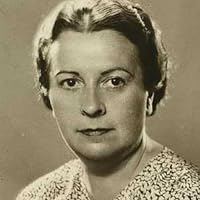
“(...)
-Pero, ¿es que también estos fusilan y quitan las casas, y...?
-Sí, hija.
-Entonces, ¿todos son iguales? (...)”
― Celia en la revolución
-Pero, ¿es que también estos fusilan y quitan las casas, y...?
-Sí, hija.
-Entonces, ¿todos son iguales? (...)”
― Celia en la revolución

“It was the first time that I had ever been in a town where the working class was in the saddle. Practically every building of any size had been seized by the workers and was draped with red flags or with the red and black flag of the Anarchists; every wall was scrawled with the hammer and sickle and with the initials of the revolutionary parties; almost every church had been gutted and its images burnt.”
― Homage to Catalonia
― Homage to Catalonia

“Questo popolo che ha scelto la lotta affronta ora le pene dell'assedio, pagando silenziosamente il prezzo del riscatto”
― Mi Guerra De España
― Mi Guerra De España

“I had dropped more or less by chance into the only community of any size in Western Europe where political consciousness and disbelief in capitalism were more normal than their opposites. Up here in Aragon one was among tens of thousands of people, mainly though not entirely of working-class origin, all living at the same level and mingling on terms of equality. In theory it was perfect equality, and even in practice it was not far from it. There is a sense in which it would be true to say that one was experiencing a foretaste of Socialism, by which I mean that the prevailing mental atmosphere was that of Socialism. Many of the normal motives of civilized life — snobbishness, money-grubbing, fear of the boss, etc. — had simply ceased to exist. The ordinary class-division of society had disappeared to an extent that is almost unthinkable in the money — tainted air of England; there was no one there except the peasants and ourselves, and no one owned anyone else as his master.”
― Homage to Catalonia
― Homage to Catalonia

“En el día de hoy, cautivo y desarmado el Ejército Rojo, han alcanzado las tropas nacionales sus últimos objetivos militares. La guerra ha terminado.
[Parte oficial de guerra del 1 de abril de 1939]”
―
[Parte oficial de guerra del 1 de abril de 1939]”
―
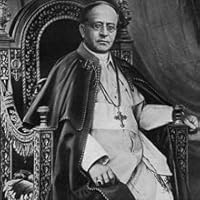
“18. A third powerful factor in the diffusion of communism is the conspiracy of silence on the part of a large section of the non-Catholic press of the world. We say conspiracy, because it is impossible otherwise to explain how a press usually so eager to exploit even the little daily incidents of life has been able to remain silent for so long about the horrors perpetrated in Russia, in Mexico and even in a great part of Spain; and that it should have relatively so little to say concerning a world organization as vast as Russian communism. This silence is due in part to short-sighted political policy, and is favored by various occult forces which for a long time have been working for the overthrow of the Christian Social Order.”
― Divini Redemptoris: On Atheistic Communism
― Divini Redemptoris: On Atheistic Communism

“two thousand or more Spaniards sailing toward that long, narrow South American country that clung to the mountains so as not to topple into the sea.”
― A Long Petal of the Sea
― A Long Petal of the Sea
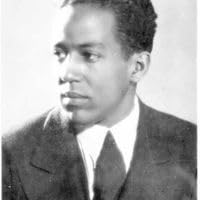
“And now, in Madrid, Spain's besieged capital, I've met wide-awake Negroes from various parts of the world--New York, our Middle West, the French West Indies, Cuba, Africa--some stationed here, others on leave from their battalions--all of them here because they know that if Fascism creeps across Spain, across Europe, and then across the world, there will be no place left for intelligent young Negroes at all. In fact, no decent place for any Negroes--because Fascism preaches the creed of Nordic supremacy and a world for whites alone.”
― Good Morning, Revolution: Uncollected Social Protest Writings
― Good Morning, Revolution: Uncollected Social Protest Writings

“Let guns alone salute
The wisdom of our age
With dusty powder marks
On yet another page of history.”
― Good Morning, Revolution: Uncollected Social Protest Writings
The wisdom of our age
With dusty powder marks
On yet another page of history.”
― Good Morning, Revolution: Uncollected Social Protest Writings

“Albert Camus said of the Spanish struggle: It is now nine years that men of my generation have had Spain within their hearts. Nine years that they have carried it with them like an evil wound. It was in Spain that men learned that one can be right and yet be beaten, that force can vanquish spirit, that there are times when courage is not its own recompense. It is this, doubtless, which explains why so many men, the world over, regard the Spanish drama as a personal tragedy.”
― My Granny Made Me an Anarchist. The Christie File: Part 1, 1946 - 1964
― My Granny Made Me an Anarchist. The Christie File: Part 1, 1946 - 1964

“Modifying Clausewitz’ aphorism—war is the continuation of diplomacy by other means—one could say that in ideologically divided countries civil war is but the continuation of parliamentarism with other means.”
― Leftism Revisited: from de Sade and Marx to Hitler and Pol Pot
― Leftism Revisited: from de Sade and Marx to Hitler and Pol Pot
“Blockade (1938)
Marco: [last lines, after being told to find peace] Marco: Peace? Where can you find it? Our country's been turned into a battlefield! There's no safety for old people and children. Women can't keep their families safe in their houses; they can't be safe in their own fields! Churches, schools, hospitals are targets! It's not war; war is between soldiers! It's murder! Murder of innocent people! There's no sense to it. The world can stop it! Where's the conscience of the world?”
―
Marco: [last lines, after being told to find peace] Marco: Peace? Where can you find it? Our country's been turned into a battlefield! There's no safety for old people and children. Women can't keep their families safe in their houses; they can't be safe in their own fields! Churches, schools, hospitals are targets! It's not war; war is between soldiers! It's murder! Murder of innocent people! There's no sense to it. The world can stop it! Where's the conscience of the world?”
―
“Blockade (1938)
Marco: [last lines, after being told to find peace]
Marco: Peace? Where can you find it? Our country's been turned into a battlefield! There's no safety for old people and children. Women can't keep their families safe in their houses; they can't be safe in their own fields! Churches, schools, hospitals are targets! It's not war; war is between soldiers! It's murder! Murder of innocent people! There's no sense to it. The world can stop it! Where's the conscience of the world?”
―
Marco: [last lines, after being told to find peace]
Marco: Peace? Where can you find it? Our country's been turned into a battlefield! There's no safety for old people and children. Women can't keep their families safe in their houses; they can't be safe in their own fields! Churches, schools, hospitals are targets! It's not war; war is between soldiers! It's murder! Murder of innocent people! There's no sense to it. The world can stop it! Where's the conscience of the world?”
―

“If I did compress what I know and think about the spanish civil war into 6 lines you wouldn't print it. You wouldn't have the guts.”
― Essays
― Essays

“--Do you think he'll be careful, Michael?
--Being that it's a war, ma'am, that would sort of defeat the purpose.
--Yes. I suppose it would.”
― Rules of Civility
--Being that it's a war, ma'am, that would sort of defeat the purpose.
--Yes. I suppose it would.”
― Rules of Civility

“Somos la voz de aquellos que tuvieron padres en el bando nacional y se resisten tener que hacer una condena de lo que hicieron sus familias. De aquellos que no quieren que se cambie el nombre de su calle por fanatismo político de quienes quieren una España de memoria hemipléjica.”
―
―

“The intimate daily contact with harsh reality began to fray the fabric of my religious convictions... I was beginning to learn that our poverty – the lack of the most basic human necessities – was not caused or altered by the will of any deity. The source of our misery was not in heaven but on earth. It arose from institutions established by men which could be altered or destroyed by other men.”
― They Shall Not Pass: The Autobiography of La Pasionaria
― They Shall Not Pass: The Autobiography of La Pasionaria

“The Spanish Civil War was the first fought in Europe in which civilians became targets en masse, through bombing raids on big cities.”
― The Spanish Civil War: A Very Short Introduction
― The Spanish Civil War: A Very Short Introduction

“The Spanish Civil War began with a military coup.”
― The Spanish Civil War: A Very Short Introduction
― The Spanish Civil War: A Very Short Introduction

“Notwithstanding the currency of ideas about ‘two Spains’ ready to confront each other on 18 July 1936, ‘us’ and ‘them’ were categories actively made by the violent experience of the war and did not fully exist prior to it.”
― The Spanish Civil War: A Very Short Introduction
― The Spanish Civil War: A Very Short Introduction

“From the start, the Left was handicapped by the great ideological differences between its constituent parts. Widest of all was the gap between the parliamentary socialist movement and the anti-parliamentary anarcho-syndicalist CNT. These differences were not a matter of voluntarism or sheer bloody-mindedness, as the standard historical narrative so often implies. Rather, their irreducibility was a result of the vastly different political, economic, and cultural experiences of the Left’s social constituencies in what was a highly unevenly developed country. For example, the direct political action favoured by many anarcho-syndicalists instantly recommended itself to the unskilled and the landless poor, whose lack of bargaining power and social defencelessness made socialist promises of gradual change through the ballot box seem immensely improbable, if not downright incredible.”
― The Spanish Civil War: A Very Short Introduction
― The Spanish Civil War: A Very Short Introduction

“For urban and rural workers, and for the poor more generally in Spain, the state still had overwhelmingly negative connotations: military conscription, indirect taxation, and everyday persecution — particularly for the unionized. Thus for many Spanish workers, resistance to the military rebels was initially also directed ‘against the state’ and was bound up with the building of a new social and political order, often on radical anti-capitalist economic lines (money was frequently abolished).”
― The Spanish Civil War: A Very Short Introduction
― The Spanish Civil War: A Very Short Introduction

“The absence of a functioning police force or judiciary in Republican territory in the first weeks after the coup, plus the de facto amnesties that saw gaols empty, made it possible for all manner of personal scores to be settled and acts of outright criminality to be pursued in the guise of revolutionary justice.”
― The Spanish Civil War: A Very Short Introduction
― The Spanish Civil War: A Very Short Introduction

“Vous vous rendez compte, quelle vie cette vie. Vous vous rendez compte, quel monde ce monde," Mais oui, je me rends compte. Je ne fais que ça, me rendre compte et en rendre compte. C'est bien ce que je souhaite. J'ai souvent recontré, au cours de ces années, ce même regard d'étonnement absolu qu'a eu ce viellard qui allait mourir, juste avant de mourir. J'avoue, d'ailleurs, n'avoir jamais bien compris pourquoi tant de types s'étonnaient tellement, Peut-être parce que j'ai une plus longue habitude de la mort sur les routes, des foules en marche sur les routes, avec la mort aux trousses. Peut-être que je n'arrive pas à m'étoner parce que je ne vois que ça, depuis juillet 1936. Ils m'énervent, souvent, tous ces étonnés. Ils reviennent de l'interrogatoire, éberlués. "Vous vous rendez compte, ils m'ont tabassé. -- Mais que voulez-vous qu'ils fassent, nom de dieu? Vous ne saviez donc pas que ce sont des nazis?" Ils hochaient la tête, ils ne savaient pas très bien ce qu'il leur arrivait. "Mais bon dieu, vous ne saviez pas à qui nous avons affaire?" Ils m'énervent souvent, ces éberlués. Peut-être parce que j'ai vu les avions de chasse italiens et allemands survoler les routes à basse altitude et mitrailler la foule, bien tranquillement, sur les routes de mon pays. À moi cetter charrette avex la femme en noir et le bébé qui pleure. À moi ce bourricot et la gran-mère sur le bourricot. À toi cette fiancée de neige et de feu qui marche comme une princesse sur la route brûlante. Peut-être qui'ils m'énervent, tous ces étonnés, à cause des villages en marche sur les routes de mon pays, fuyant ces mêmes S.S., our leurs semblables, leurs frères. Ainsi, à cette question: "Vous vous rendez compte?" j'ai une réponse toute faite, comme dirairt le gars de Semur. Mais oui, je me rends compte, je ne fais que ça. Je me rends compte et j'essaie d'en rendre compte, tel est mon propos.”
― The Long Voyage
― The Long Voyage
All Quotes
|
My Quotes
|
Add A Quote
Browse By Tag
- Love Quotes 97.5k
- Life Quotes 76k
- Inspirational Quotes 73k
- Humor Quotes 44k
- Philosophy Quotes 29.5k
- Inspirational Quotes Quotes 27k
- God Quotes 26k
- Truth Quotes 23.5k
- Wisdom Quotes 23.5k
- Romance Quotes 23k
- Poetry Quotes 22k
- Death Quotes 20k
- Happiness Quotes 18.5k
- Life Lessons Quotes 18.5k
- Hope Quotes 18k
- Faith Quotes 18k
- Quotes Quotes 16.5k
- Inspiration Quotes 16.5k
- Spirituality Quotes 15k
- Religion Quotes 15k
- Motivational Quotes 15k
- Writing Quotes 15k
- Relationships Quotes 14.5k
- Life Quotes Quotes 14k
- Love Quotes Quotes 14k
- Success Quotes 13.5k
- Time Quotes 12.5k
- Motivation Quotes 12k
- Science Quotes 11.5k
- Motivational Quotes Quotes 11.5k

